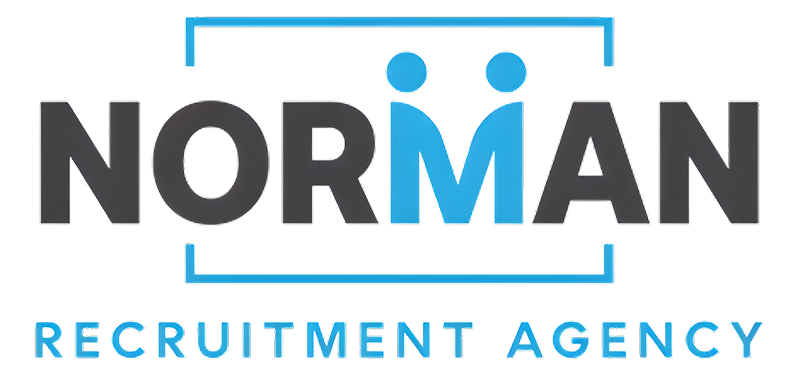As restaurant and hotel managers, the role to be performed is not only about filling positions but rather creating a future for your restaurants and hotels through strategically developing the Gen Z workforce. In order to meet the changing demands of this industry, managers need to employ innovative practices in relation to recruitment, talent development, and employee engagement.
Understanding Generation Z
Gen Z was born between 1997 and 2012 as it is the most racially and ethnically diverse generation comprising individuals who are aged between 12 and 27 years. As managers in the hospitality industry, understanding the distinguishing features of Gen Z could enable them to match their career aspirations alongside those expectations and desires.
Managers must create a workplace environment that promotes and celebrates this diversity to fulfill employee satisfaction needs as well as talent attraction or retention.
Technological Proficiency
Both Gen Z grew up with instant internet access, receiving their first mobile devices at an average age of 10.3 years in the year. This tech-savvy generation uses social media for various functions and applies mobile bank apps so much.
Financial Prudence
Being familiar with past generations’ financial difficulties, generation Z is more frugal in their spending habits. Thus, as F&B managers, understanding their preferences for financial education, savings over debts and interest in debit cards can be used to inform benefits and incentive structures based on personal values.
Educational Attainment
Perceived as the best-educated generation yet, many Gen Zs are currently graduating with degrees in diverse fields, including science and psychology. Acknowledging their educational pursuits is vital for managers seeking to tap into their skill sets and align career plans with their academic backgrounds.
If you’re a Gen Z individual ready to start a fulfilling restaurant or hotel career journey, our platform is here to support you every step of the way. Sign up on our job seeker registration form today and let us assist you in enhancing your resume and refining your interview skills.
Importance of Early Career Recruitment in Hospitality
Early career recruitment is targeted for recruiting people who are about to graduate or have graduated from universities. This approach, however, is particularly relevant for managers in the hospitality industry as they think of Gen Z traits and opportunities.
With this generation moving into the workforce, their young age and lack of years of experience make them ideal prospects for early career recruitment programs. Early career recruitment in the F&B industry and hospitality at large offers multifaceted advantages for managers:
1. Shaping Company Culture
Managers who interact with Gen Z at the onset of their careers directly influence what can become a pervasive company culture in time. It offers an opportunity to impart values, work ethics, and the aspect of belonging from inception.
2. Digital Innovation
Growing up during the digital age, Gen Z has built a connection to innovation and technological solutions. Early Career recruitment allows managers to take advantage of this digital fluency; building a tech-savvy workplace.
3. Diverse Perspectives
Through the employment of early-career people, especially members of diverse Generation Z, managers bring new approaches and ideas to their teams. This variation improves problem-solving skills and stimulates innovation in the work environment.
Enhance your team’s dynamics and cultivate innovation by registering on our corporate registration form today.
Crafting an Early Career Recruitment Plan for Gen Z
Formulating a targeted early career recruitment plan for Gen Z is a huge undertaking for managers. Here are the key steps and considerations for managers aiming to attract and engage Gen Z talent at the outset of their professional journey:
1. Build Solid Relationships with Hospitality Schools
It is contrary to the belief that digital natives communicate only online, Gen Z appreciates offline communication even if it happens via WEB. This allows managers mid-level access to top talent before graduation using on-campus and online career fairs as well as fostering relationships with college career centers.
2. Make Your Employer Brand Visible
For managers in the hospitality industry, building and promoting a visible employer brand is crucial. Utilize platforms like Instagram, Twitter, and Facebook to communicate the values and mission statement of your F&B establishment or hotel. Establishing an employee influencer network, where current staff share their experiences on social networking sites, can significantly enhance brand visibility.
3. Simplify the Hiring Process
Gen Z candidates consider abandoning online applications that take more than 15 minutes to complete. To accommodate this preference, managers should focus on creating a simplified and user-friendly hiring process. Utilize technology to automate repetitive tasks, and ensure that the application process is intuitive and efficient.
4. Develop a Candidate Persona and Employer Proposition
Managers should invest time in researching the specific persona of their ideal Gen Z candidate. Tailoring application forms, job descriptions, and recruitment strategies based on this persona ensures that the process is both efficient and personalized.
How To Engage Gen Z in the Workplace
Managers should proactively communicate long-term opportunities available within the organization, enabling Gen Z employees to visualize their growth trajectory. Setting clear milestones for pay raises and promotions in the short term provides tangible goals, instilling a sense of purpose and progression.
Don’t Offer Perks, Offer Security
Having lived through economic downturns, Gen Z places a premium on job security. While traditional perks like casual uniforms or snacks might have been enticing for previous generations, Gen Z prioritizes stability and a steady income. For managers, emphasizing security in the workplace, including quality healthcare benefits and paid sick leave, resonates more strongly with Gen Z than superficial perks.
Let Their Strengths Shine
It is advisable for managers to use creativity in adopting new technologies and deploying them while solving work problems. Acknowledging and supporting the strengths of Gen Z creates a positive working environment which makes them important contributors to the technology growth within an organization.
Be Willing to Listen
Managers should create an environment where Gen Z employees feel heard and valued. With their creativity, drive, and extensive knowledge of new technologies, Gen Z individuals may bring innovative ideas to the table. Actively listening to their insights and fostering an open dialogue can lead to mutual learning and collaboration.

